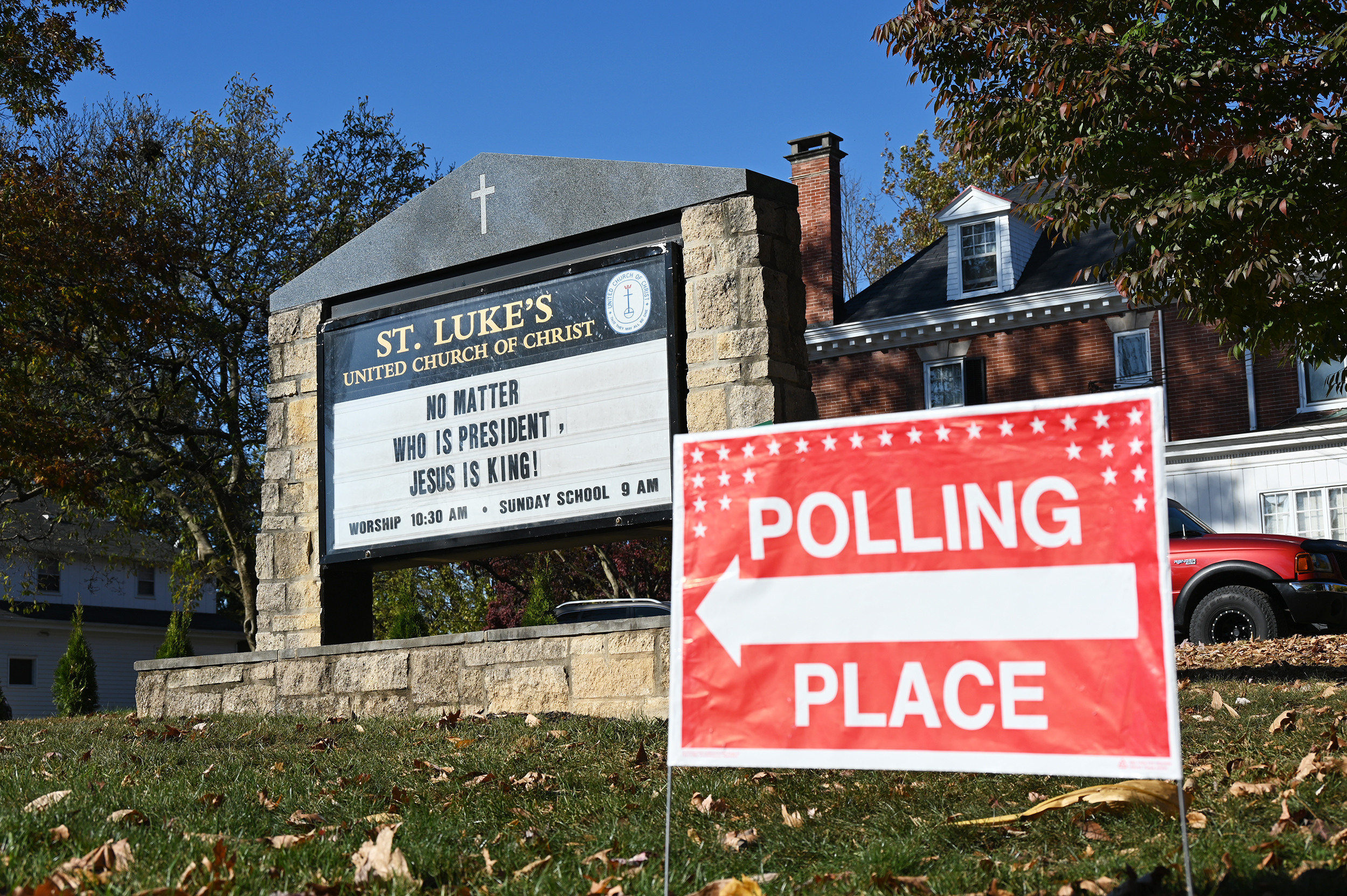
(RNS) — Last April, Donald Trump said that any Jew who votes for a Democrat or Joe Biden “should have their head examined.”
Word is, the Jews didn’t take the warning to heart. According to exit polls, 78% of them voted for Kamala Harris, up 10 percentage points from their vote for Biden in 2020. How come they bucked the national trend toward Trump?
Maybe it was because they appreciated Biden’s support for Israel after what happened on Oct. 7 a year ago and appreciated Harris’ support for that support. Or maybe concern for the state of democracy, preeminent among Harris voters, weighed particularly heavily with them.
Or maybe because twice as many Jews have college degrees as other Americans, and most Americans with college degrees voted for Harris. Maybe because Harris’ husband is Jewish, or because they’ve been reading about the rise of Christian nationalism. It may be a combination of some or all of the above.
The only other religious grouping to buck the trend was the nones — atheists, agnostics and nothing-in-particulars — who went from 65%-31% for Biden to 71%-26% for Harris. They’re closer to the average on the college-degree front, and therefore the perceived rise of Christian nationalism likely did much to shift them — up 2 points to 24% of the electorate since 2020 — toward the Democratic candidate.
On the other side of the ledger, Protestants (plus other non-Catholic Christians) shifted toward Trump by only a few points, from 60% in 2020 to 63% in 2024. More notably, non-Judeo-Christians, now constituting 10% of the voting population, lowered their support for the Democratic candidate from 69% in 2020 to 59% in 2024.
A significant portion of that decrease appears to have come from Muslims upset at the Biden administration’s support for Israel in the Gaza war. (Trump, for his part, actively sought Muslim support, in striking contrast to his 2016 campaign call for and subsequent creation of a “Muslim ban” on immigration.)
Most consequential was the Catholic shift toward Trump, from 52% in 2020 to 58%. In recent elections, the Catholic vote was kept in rough balance between increasingly Republican whites and staunchly Democratic Latinos. This election’s overwhelming shift of Latino men in favor of Trump and modest shift of Latino women away from the Democrats clearly destroyed that balance.
Apart from religious demographics, we can ask how religious values fared. The answers depend, of course, on what values are deemed to be religious.
If opposition to abortion is a religious value, then that one didn’t fare well. In seven states, including red Missouri and Montana and purple Arizona and Nevada, referendums guaranteeing a state constitutional right to abortion passed, mostly by overwhelming margins. To be sure, for the first time since the Dobbs decision overturning Roe v. Wade, such referendums were voted down — in Nebraska, Florida and South Dakota. But in Florida, which requires 60% of the vote for passage, fully 57% voted in favor.
If welcoming the stranger is a religious value, then that one didn’t fare well either — at least if you consider it violated by a policy of returning most undocumented immigrants to their country of origin. Eight-seven percent of Trump voters said they support that policy.
If you see increasing benefits for workers as a religious value, then there’s positive news from Alaska, which raised the minimum wage and required employers to provide sick leave; from Arizona, which declined to reduce the minimum wage for tipped workers; from Massachusetts, which increased the minimum wage for tipped workers; and from Missouri, which increased the minimum wage and required employers to pay sick leave.
If you see it as a religious value not to get high, then there’s positive news from Florida, North Dakota and South Dakota, all of which declined to legalize recreational marijuana.
But there’s bad news for those who see seeking common ground as a religious value. In Alaska, where political compromise gained a substantial foothold in the state Legislature since ranked choice voting was established two years ago, newfound GOP opposition may have persuaded voters to do away with it (the result is still too close to call). And in Arizona, Nevada, Oregon, South Dakota and probably in Colorado, ranked choice went down to defeat.
It did, however, prevail in the District of Columbia. Praise the Lord, and make it a state.
Finally, there’s the religious value of having a moral person leading your country. This time around in America, not so much.
